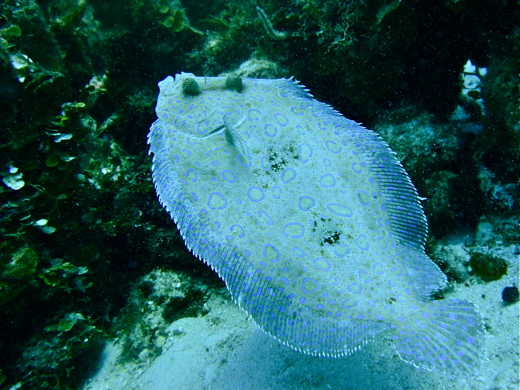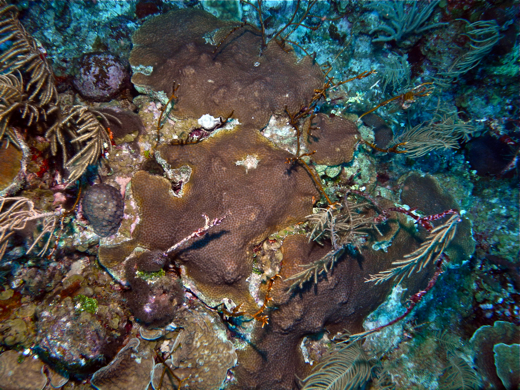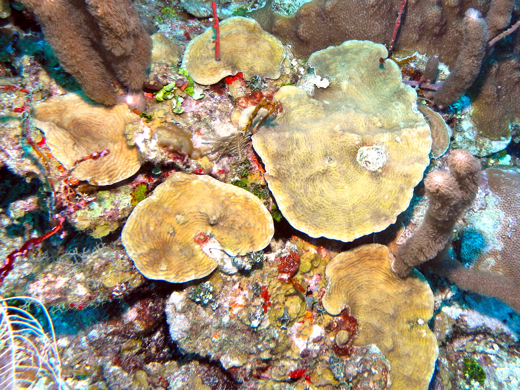Suffice it to say there will be no more photos of a mirror-like sea surface anytime soon. This morning we fought high winds and 1.5-meter swells in the channel that runs between Bajo Nuevo’s two main reefs, but still managed to get in one regular and two conch survey dives. There was a nearly 2-meter nurse shark waiting for us as soon as we hit the bottom. And, as expected, we found a place very different from Alice Shoal.

We dove near the edge of the islets’ deep channel because weather forecasts say things could get even worse. We thought it might be our only shot at getting down to see this part of the reef. Tomorrow, assuming conditions aren’t too rough, we’ll dive closer to the islets in a relatively protected lagoon, which looked incredible from the surface as we passed through this morning.
There’s far more coral here. Our dive site was a true coral reef with an extensive spur and groove structure built by corals themselves. We can’t say much after just one dive, but the corals we saw were healthy and widespread. Chief scientist Andy Bruckner was particularly pleased to find healthy star coral colonies of a size that’s difficult to find these days elsewhere in the Caribbean.

There’s also quite a bit less algae than at Alice Shoal, and we’re swimming with different fishes. There are fewer triggers and durgeons, though both are still quite plentiful. Here we find more parrotfishes and different species.
As I write, the swells are rocking us enough that I can watch the window in the room across the hall change back and forth from all sea blue to all sky blue. Tomorrow the winds are supposed to shift a bit so that the ship will get more protection from the islands. We shall see.

(Photos/Images by: 1 Felipe Cabeza, 2 Andrew Bruckner, 3 Felipe Cabeza)
To follow along and see more photos, please visit us on Facebook! You can also follow the expedition on our Global Reef Expedition page, where there is more information about our research and team members.